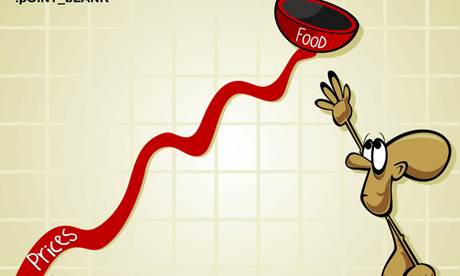The United Nations Children’s Fund is concerned about poor people living in urban areas in Pacific region as global food prices rise.
Since 2009 UNICEF has worked with six Pacific Island countries to establish early warning monitoring to track the impact of economic crises on the most vulnerable and to provide real-time pulse data”. It found that the most recent round of surveys in 18 urban settlements and rural communities revealed
- a worrying picture of high food prices across the region.
- A majority of families interviewed reported increased economic stress in meeting food expenditures because of rising food prices.
- The impact is being felt in family’s diets as they switch to locally-produced foods or cheaper substitutes.
In response the Food and Agricultural Organisation (FAO) and Pacific island governments met in Nadi last week to discuss measures to address the emerging food price crisis. There was consensus that measures would need to be based on individual country situations and the priorities and capacities of different stakeholders,
Unicef representative in the Pacific Dr Isiye Ndombi said “The problem is particularly acute for families in urban settlements who do not have the option of supplementing their diets with gardening and fishing,” The effects of cutting back on food or switching to less nutritious food can have a serious effect on pregnant women and young children, depriving them of essential nutrients during a critical period.” He said sentinel monitoring also reveals that adolescents were facing some of the harshest impacts of the price rises.
The report in the Fiji Sun suggests that now is the time:
- To tighten belts.
- To practice economies of scale.
- To make use of backyard gardens
- To walk instead of taking a cab
- To take the bus instead of using your own vehicle.
- To watch your spending
- To live within your means.
Sources
